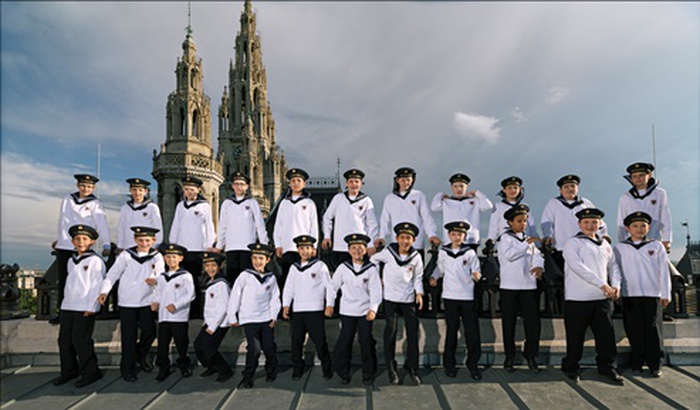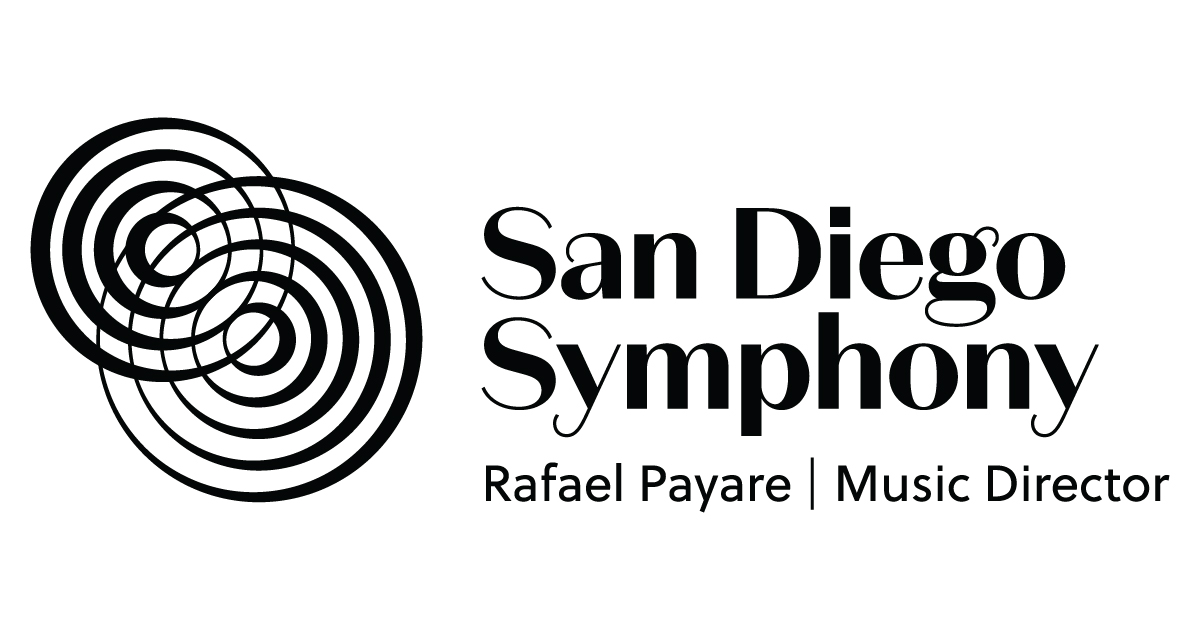Boys have been singing at the court of the Holy Roman Emperor since the early fifteenth century. In 1498 more than half a millennium ago, Emperor Maximilian I moved his court and his court musicians to Vienna. He gave instructions that there were to be six singing boys among his musicians. Historians have settled on 1498 as the foundation date of the Vienna Hofmusikkapelle and in consequence the Vienna Boys Choir. Until 1918 the choir sang exclusively for the imperial court, at mass, at private concerts and functions, and on state occasions.
Musicians like Heinrich Isaac, Heinrich Ignaz Franz Biber, Johann Joseph Fux, Wolfgang Amadeus Mozart, Antonio Caldara, Antonio Salieri and Anton Bruckner worked with the choir. Composers Jacobus Gallus and Franz Schubert were themselves choristers. Brothers Joseph and Michael Haydn were members of the choir of St. Stephen’s Cathedral, and frequently sang with the imperial boys’ choir.
In 1918, after the breakdown of the Habsburg Empire, the Austrian government took over the court opera, its orchestra and the adult singers, but not the boys’ choir. The Vienna Boys Choir owes its survival to the initiative of Josef Schnitt, who became Dean of the Imperial Chapel in 1921. Schnitt established the boys’ choir as a private institution. The former court choir boys became the Wiener Sängerknaben (Vienna Boys Choir), the imperial uniform was replaced by the sailor suit, then the height of boys’ fashion. Funding was not enough to pay for the boys’ upkeep, and in 1926 the choir started to give concerts outside of the chapel, performing motets, secular works, and – at the boys’ request – children’s operas. The impact was amazing: within a year, the choir performed in Berlin (where Erich Kleiber conducted them), Prague and Zurich. Athens and Riga (1928) followed, then Spain, France, Denmark, Norway and Sweden (1929), the United States (1932), Australia (1934) and South America (1936).
Present
Today there are around 100 choristers between the ages of ten and 14, divided into four touring choirs. The four choirs give around 300 concerts and performances each year in front of almost half a million people. Each group spends nine to 11 weeks of the school year on tour. They visit virtually all European countries, and they are frequent guests in Asia, Australia and the Americas.
Together with members of the Vienna Philharmonic Orchestra and the Vienna State Opera Chorus, the Vienna Boys Choir maintains the tradition of the imperial musicians: as Hofmusikkapelle they provide the music for the Sunday Mass in Vienna’s Imperial Chapel, as they have done since 1498. On January 1, 2012, the choir participated for the fifth time in the New Year’s Concert of the Vienna Philharmonic Orchestra, conducted by Mariss Jansons.
Repertoire
The choir’s repertoire includes everything from medieval to contemporary and experimental music. Motets and lieder for boys’ choir form the core of the touring repertoire, as do the choir’s own arrangements of quintessentially Viennese music, waltzes and polkas by Lehár, Lanner and Strauss.
Both the choir and the Hofmusikkapelle have a long tradition of commissioning new works. Austrian composers H.K. Gruber (himself a former chorister), Heinz Kratochwil, Ernst Krenek, Balduin Sulzer and Gerald Wirth have written works for the choir.
The Vienna Boys Choir performs major choral and symphonic works, sometimes as part of the Hofmusikkapelle, sometimes with other orchestras and men’s choirs. They are regularly asked to supply soloists for large choral and orchestral works, such as Bernstein’s Chichester Psalms and Mahler’s Das klagende Lied. In recent years they have performed with the Vienna Philharmonic Orchestra, the Vienna Symphony Orchestra, the Staatskapelle Berlin, the Oslo Philharmonic and the Pittsburgh Symphony Orchestra. Recent guest conductors include Pierre Boulez, Nikolaus Harnoncourt, Mariss Jansons, Zubin Mehta, Riccardo Muti (honorary member of the Hofmusikkapelle), Kent Nagano, Seiji Ozawa, Christian Thielemann and Simone Young.
The choir also takes part in opera performances at the Vienna State Opera, the Vienna Volksoper, and the Salzburg Festival. Choristers appear as three boys in W.A. Mozart’s The Magic Flute. Recently, a soloist sang the part of Oberto in Handel’s opera Alcina, conducted by Marc Minkowski.
Children’s Operas
Children’s operas are an important part of the repertoire: The boys love to act. The choir started performing operas in the 1920s, beginning with classics such as W.A. Mozart’s Bastien und Bastienne, Weber’s Abu Hassan and Haydn’s Der Apotheker. Benjamin Britten wrote the vaudeville The Golden Vanity for the choir, and conducted it premiere at the Aldeburgh Festival in 1967 in the presence of Her Majesty Queen Elizabeth II.
In the last decade the choir has successfully produced a number of new operas. Gerald Wirth’s The Journey of the Little Prince and The Tablet of Destinies, an opera based on the Babylonian myth of Anzu, and Raoul Gehringer’s Moby-Dick, based on the novel by Herman Melville, were all performed at Vienna’s Musikverein. Gerald Wirth’s 1398 – Der Bettelknabe (The begging boy), a story set in medieval Palestine and Europe, premiered in 2010. A new opera set in the fourth century AD is currently in production.
World Music and Cross Over Projects
Since the 1920s, the choir has collected music from around the world. One of the choir’s goals is to introduce the boys to as many different styles of music as possible. The choir has commissioned a number of world music projects. As Gerald Wirth explains, “We do not claim to play ‘authentic’ world music; we create something from the original sources that is our own. We want to be faithful to the source in the sense that we treat it with respect.” Silk Road is the choir’s third world music project. The colorful journey along the old trade route features songs from Uzbekistan and China, a qawwali from Pakistan, a ghazal from Iran and field hollers from Tajikistan, all sung in the original languages. Pirates tells the story of eighteenth-century pirates, using music from Yemen, Madagascar, the Caribbean and Latin America. The choir is currently working on a project with musicians from several North American Indian nations.
Film: Silk Road – Songs Along the Road and Time
The choir’s Silk Road opera inspired acclaimed director Curt Faudon to make a film about the globetrotting choristers. For over a year, Faudon followed the boys’ life in Vienna and on the road, filming the boys at work and at play, on and off stage, meeting and working with artists from Central Asia, China and India. The resulting 90-minute film is a clever blend of fly-on-the wall documentary, road movie, costume drama and music, with stunning footage from all across the world and through time, with an unusual, off-beat soundtrack which has the boys singing in Arabic, Chinese, Farsi, French, Japanese, Latin, Marathi, Maori, Savo Finnish, Tajik, Uyghur, Urdu, Uzbek and German. A second film, Bridging the Gap, was released in 2013.
The choristers, who also sing popular music, have contributed to a number of soundtracks for major motion pictures in the United States, Japan and Europe.
The Choir School
The choir maintains its own school. Almost 300 children study and rehearse in the Augartenpalais, a baroque palace and former imperial hunting lodge in Vienna. Beginning with kindergarten, run in cooperation with the city of Vienna, boys and girls are provided with a complete musical and general education through the elementary grades. At age ten, the most talented boys are selected to join the choir and enter the choir’s grammar school. All boys are assigned to one of the touring choirs. Academic lessons are taught in small groups. The school has several bands, and offers extracurricular activities ranging from all kinds of sports to attending a wide range of concerts, operas, plays, musicals and movies. The choristers are also encouraged to create their own projects; a number of them write, act and direct short sketches or films. All choir boys live in the choir’s own well-appointed boarding school, with two to three boys sharing a room.
In 2010 the choir launched its new senior high school for boys and girls. The unique curriculum, developed in conjunction with the University of Music in Vienna and the Salzburg Mozarteum, is designed to best prepare young singers for university and for a career in music.
Many of the school’s alumni go on to become professional musicians, conductors, singers or instrumentalists, in Vienna and abroad. Almost all continue to sing. There are two male voice ensembles made up entirely of former choristers, the Chorus Viennensis and the Imperial Chapel’s Schola Cantorum. All students retain a lifelong commitment to the Arts.
Development and Funding
The Vienna Boys Choir is a private, non-for-profit organization, which finances itself largely through concerts, recordings and royalties. A contract between the Republic of Austria and the choir provides further means; and the Ministry of Education and the State’s Art Department help with special projects, such as the production of new children’s operas. Further development and projects depend on additional funds.
The POK Pühringer Privatstiftung, based in Vienna’s Palais Coburg is the choir’s general sponsor. With its backing, the choir is currently constructing an on-campus concert hall to facilitate the opera productions in particular. The new center is dedicated to music education; the building will incorporate a baroque gatehouse and the old park wall – a unique architectural ensemble.
Gerald Wirth, the choir’s artistic director, received his first musical training as a member of the choir and at the Bruckner Konservatorium in Linz, Austria, where he studied voice, oboe and piano. He has conducted choirs and orchestras in many countries, and he has played and sung himself in a number of ensembles.
His first love is the voice, as is evident from his compositions: he has written three children’s operas, a Mass, motets and countless arrangements for choirs. He finds much of his inspiration in myths and philosophical texts. His works are performed internationally.
In 2001 Gerald Wirth became the artistic director of the Vienna Boys Choir. While he is keenly aware of the choir’s rich tradition, Wirth also explores new ways to create and make music. He has instigated a number of projects involving world music, a cappella pop and film music. Wirth firmly believes that music has a positive influence on every aspect of a personality.


